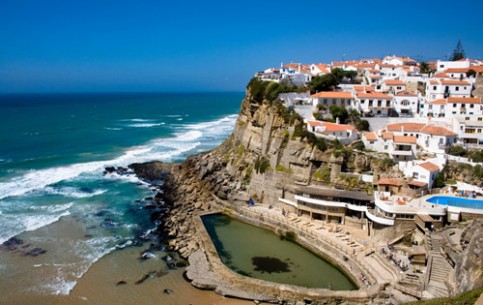
Visit to Portugal gives an opportunity to rest on excellent sandy beaches, get familiar with ancient history and numerous architectural monuments, wonderful local cuisine
Portugal has assimilated peoples of different origins: Phoenicians, Greeks, Carthaginians, Romans, northern Europeans and peoples from Mauritania. In spite of all these mixtures, Portugal is one of the oldest nations in Europe. In the 12th century, the country gained its independence from the other kingdoms in the Iberian Peninsula. A century later, with the conquest of the Algarve, Portugal definitively established its continental border. The University of Coimbra, established in 1290, is one of the oldest in Europe. Among the best-known Portuguese poets are Luís de Camões and Fernando Pessoa. In the 14th, 15th and 16th centuries, the Portuguese were the first Europeans to sail to Africa, from where they brought a wealth of treasures. Also they discovered the archipelagos of the Azores and Madeira, which are part of its territory in the Atlantic. After a dynastic crisis and a period under the rule of the Spanish crown, in 1640 a Portuguese king took the throne once more. In the 18th century, King Joao V, an absolutist monarch and a patron of the arts, built a huge palace and convent in Mafra and the great aqueduct that supplied Lisbon’s water. In the 19th century, the monarchy was weakened by clashes between different factions and, in 1910, it was overthrown and Portugal became a republic. It has been members of the EU since 1986. Surrounded by sea in almost its entirety, the Portuguese beaches are well worth visiting. A lot of activities are offered, from surfing, to kite-surfing, and during the summer months the most frequented beaches offer sand based activities such as aerobics. Some of the most popular beaches are: Espinho near Oporto; Figueira da Foz,near Coimbra; Praia das Maçãs, Estoril near Lisbon; Zambujeira in the Alentejo region; Salema, Praia da Rocha in the Algarve and others. Golf is very popular game in Portugal. During the summer, music festivals are also very common. In the north of the country two of the oldest festivals such as Paredes de Coura and Vilar de Mouros go off regularly. The regions chosen for the festivals are most of the time surrounded by beautiful landscapes and pleasant villages. Portuguese music encompasses a wide variety of genres. The most renowned is fado, a melancholy urban music, usually associated with the Portuguese guitar and saudade, or longing. Each region of Portugal has its traditional dishes with various kinds of meat and seafood, including the hundred ways of cooking cod, the national dish.
Related objects
 |
|
 |
|
 |
|
 |
|
 |
|
 |
|
Portugal • News
![]() • 2012-12-10 •
• 2012-12-10 •
“Stop taxing Tourism” WTTC urges Portugal
...
![]() • 2012-12-09 •
• 2012-12-09 •
Tourism key for jobs and exports says President of Portugal accepting the UNWTO/WTTC Open Letter on Travel and Tourism
...
![]() • 2012-10-07 •
• 2012-10-07 •
Europe\'s travel elite triumph in the Algarve
...
![]() • 2011-11-23 •
• 2011-11-23 •
Carioca Hotels had excellent occupation rates on the Republic Day holiday ...
![]() • 2011-11-23 •
• 2011-11-23 •
Inauguration of the Lagoa Christmas Tree will be on November 26 ...
All tours with a visit to object "Portugal" ![]()
YouTube Broadcast video clips
![]() Portugal Travel - Estoril and Cascais
Portugal Travel - Estoril and Cascais
![]() Sintra Portugal
Sintra Portugal
![]() Porto Portugal
Porto Portugal
![]() Algarve Portugal
Algarve Portugal




